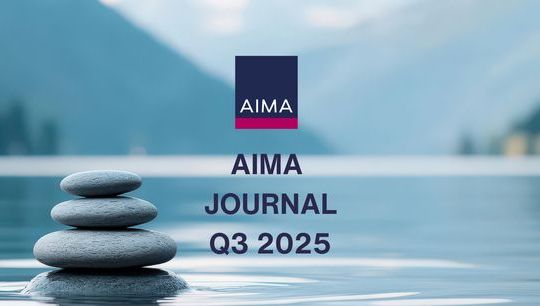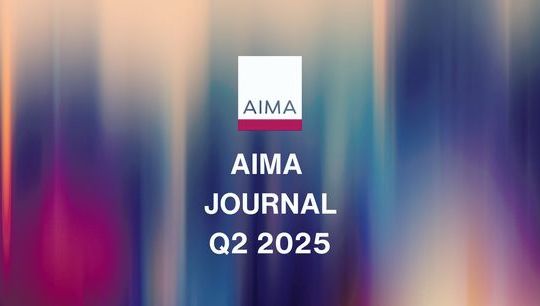Setting Up an Alternative Fund in Europe: A guide for US-based managers
By Ian Holden, SS&C GlobeOp
Published: 14 June 2019
Europe calling
By most measures, the US is the largest market for alternative funds, encompassing hedge, private equity, private credit, real estate and real asset funds. Europe runs a close second, and beckons many US managers looking to tap into new sources of investors and capital. It’s not that easy, however. US funds cannot simply invite Europeans to invest and watch the euros flow in. Europe is quite different from the North American market from a regulatory and structural perspective. The private fund marketplace is more tightly regulated and investor protections far more stringent in Europe than US managers may be used to.
In particular, in order to obtain investment from a European institutional or private investor, you are expected to have a Europe-domiciled investment vehicle. That in turn raises questions of how to structure such a fund, the regulatory hurdles you need to go through, and where it makes sense to domicile the fund among Europe’s major domiciling centers – Luxembourg, Ireland or the Channel Islands of Jersey or Guernsey.
It certainly pays to have an on-the-ground guide with experience across the European market to help you navigate these issues. In the meantime, this paper is intended to serve as an introduction to the regulatory requirements and domiciling options for US managers contemplating setting up a fund for European investors.
First Step: Get to know AIFMD
The Alternative Investment Fund Managers Directive is the primary pan-EU governing regime for alternative investment funds. The main feature of AIFMD is a “passport” that allows complying firms to market their funds to professional investors across the EU as a single market. A US manager seeking to attract or accommodate European investors may need to set up an EU-based, AIFMD-compliant entity that essentially replicates that manager’s US fund’s strategy. Under AIFMD, the fund must have a registered EU-based manager (AIFM) and use a depositary and fund administrator licensed by the EU authorities. The fund will further be subject to AIFMD disclosure and reporting requirements, most notably the Annex IV report, comparable to the US Form PF.
Where to domicile? A quick tour of Europe’s top fund destinations
Europe’s prominent alternative fund domiciling locations – Luxembourg, Ireland (specifically Dublin), and the Channel Islands of Jersey and Guernsey – have much in common. All have committed substantial resources to servicing the alternative fund sector. All claim to have tax structures favorable to investors and flexible regulatory frameworks. Each has a sizeable, well-educated professional corps engaged in the fund industry. And each has a well-developed infrastructure of specialized expertise to support investment funds, including banks, depositaries, administrators, tax advisors and legal experts.
The choice of a domicile location may come down to the type of fund you wish to establish and where similar funds tend to gravitate. Proximity to investors is another factor to consider. If you are setting up a European fund at the behest of specific investors, they will likely have a say in the decision as well. However, if you are just starting to survey the landscape, it’s instructive to understand some of the nuances that distinguish each location.
Luxembourg
Bounded by France, Germany and Belgium, the Grand Duchy of Luxembourg is Europe’s largest fund domicile center and the second-largest in the world after the US. In contrast to the tensions experienced by its larger neighbors in recent years, Luxembourg is a comparative beacon of political, social and economic stability. Most of the top US, UK and German asset management brands have chosen Luxembourg as their primary European distribution center.
The tiny country (population: 591,000) has spent decades developing a strong legal and regulatory framework to serve the global investment community. It is host to all alternative fund types, including hedge, private equity, venture capital and real estate funds, as well as funds of funds. Types of structures include: the Investment Company in Risk Capital (SICAR) regime, which allows for the creation of a private or public company to raise funds and invest in risk-bearing capital; Special Investment Funds (SIFs), flexible vehicles that are subject to lighter regulatory supervision and targeted to qualified investors; and most recently, Reserved Alternative Investment Funds (RAIFs), developed as a more flexible form of fund within the AIFMD framework. (See sidebar.)
Luxembourg tends to attract limited-partnership structures and closed-end funds typical of private equity and real estate. The country boasts its noteworthy role in the development of the real estate fund market, offering a range of legal structures and flexible regulatory requirements.
RAIF: The new alternative for alternatives
One way to accelerate the launch of a European fund entity is through the use of a Reserved Alternative Investment Fund or RAIF. Established by Luxembourg authorities under a 2016 law, the RAIF allows you to utilize the services of an authorized Alternative Investment Fund Manager (AIFM) instead of going through the local regulatory approval process under the country’s Commission de Surveillance du Secteur Financier (CSSF). Unlike Luxembourg’s SIF or SICAR fund structures, the RAIF is not subject to CSSF governance. The AIFM can be domiciled in any EU member state. In addition to faster time to market, the RAIF structure affords a greater degree of legal flexibility and lower administrative costs than other types of funds operating under CSSF supervision.
RAIFs may be organized as umbrella funds with one or more compartments or sub-funds, each with its own specifically defined investment strategy and policies. RAIFs are intended for well-informed, professional investors, including institutional and qualified private investors, professional investors and investors investing certain minimum amounts (EUR 125,000) or who qualify as well-informed investors.
Ireland
Ireland is reportedly the domicile for 5% of global investment fund assets, making it second only to Luxembourg in Europe and third-largest in the world. As the UK wrestles with its decision to leave the EU, Ireland touts its commitment to remain in the Union and continue to provide full market access to all member countries.
The Irish fund industry prides itself on an open, transparent and well-regulated investment environment, with a strong emphasis on investor protection and an efficient tax structure. Some 16,000 professionals are employed exclusively in the servicing of investment funds, including 4,000 dedicated to alternative investment funds. Ireland tends to appeal to more open-ended types of vehicles such as hedge funds. There has been much speculation in 2019 about when Ireland will update its legislation for International Limited Partnerships (ILP), which will be attractive to closed-end types of vehicles.
In 2015, Ireland introduced a vehicle designed to reduce the cost and complexity associated with establishing and maintaining a fund. The Irish Collective Asset-Management Vehicle (ICAV) allows for the creation of funds without going through the process of incorporating or become public limited companies (plcs), and which therefore are not subject to rules or requirements intended for other company types. Existing alternative investment funds in Ireland can continue to operate as usual or have the option to convert to ICAV status. Non-Irish investment companies can migrate into Ireland and become an ICAV through a relatively straightforward process.
Channel Islands: Jersey and Guernsey
An interesting alternative to Europe’s two larger fund centers, the English Channel Islands are politically and fiscally autonomous British Crown Dependencies, but not part of the UK or the EU. As “third countries” to the EU, Jersey and Guernsey have bilateral agreements with a majority of EU countries that enable marketing across the EU through National Private Placement Regimes (NPPRs). The NPPR provides a quick, efficient and low-cost alternative to the full AIFMD passport. Brexit will not impact upon the Channel Islands’ agreements with EU countries.
Although close geographically, Jersey and Guernsey are two distinct jurisdictions. Funds in Jersey are governed by the Jersey Private Fund regime or JPF. Under JPF rules, a fund can be structured as a limited partnership, company or trust, and may be either open and closed-ended. All investors must qualify as “professional” or “eligible” investors. In most cases, a JPF manager is not required to be licensed in Jersey, but the fund is required to appoint a designated service provider, usually a fund administrator, in Jersey.
Guernsey’s Private Investment Fund or PIF regime is similar to the JPF, but with a few notable differences. A PIF can be structured as a limited partnership, company or trust, and may be either open and closed-ended. It can have up to 50 investors, and they need not be deemed professional. Unlike the JPF, a PIF manager must be licensed in Guernsey. A PIF, too, must appoint a Guernsey-designated administrator. Both the Jersey and Guernsey regimes are intended to enable managers to set up funds more quickly, easily and at less cost.
Jersey and Guernsey host both closed and open-ended funds, plus hybrids. Jersey has traditionally been partial to real assets funds and Guernsey more toward private equity, although that is changing as the Jersey market has grown in size in recent years.
SS&C in Europe
SS&C is one of the few fund administrators with a truly global footprint, including an extensive team of experts across Europe. We are licensed to operate in all of Europe’s key fund jurisdictions and we have specialized expertise in all fund types. Most recently, in response to increasing investor demand, SS&C has dedicated significant resources to support real asset funds, a rapidly growing alternative category that poses unique operational and accounting challenges.
If you are exploring European opportunities, we have the knowledge of local regulations, tax laws, customs and resources to provide comprehensive guidance, with no bias toward a particular domicile. Whether you are actively engaged with European investors or simply testing the waters for expansion, contact us to discuss your alternatives.







